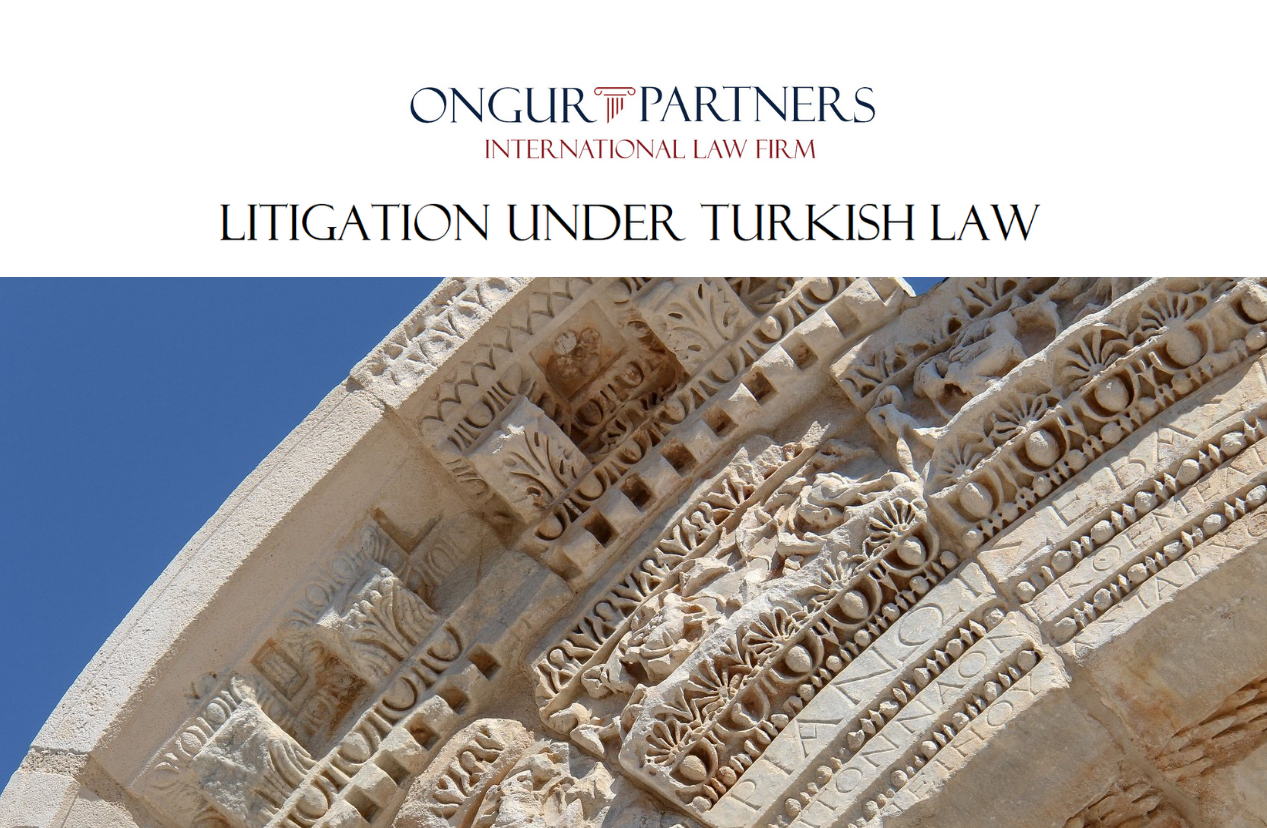Introduction

Turkey is one of the increasingly important destinations for commerce, travel as well as investment with significant opportunities. Since Turkey is an important commercial hub as such, the possibility of disputes over which Turkish courts are competent to resolve are quite high under the conflicts of law rules. The main code that regulates lawsuits involving foreigners and foreign elements in Turkey is the International Private and Civil Procedure Law. In addition, depending on the individual case, other legislation can also be applied to the underlying dispute. This article looks into the procedural rules of litigation in Turkey within the framework of Turkish Private Law.
How to file a lawsuit in Turkey?
First Step: Analysis of the Dispute and Drafting the Petition
Before filing a lawsuit before Turkish courts, the correct analysis of the concrete dispute between the parties is one of the most important issues to consider. According to Turkish Law, courts can hear a case only if it is authorized by law. Basically, the Turkish judiciary has three branches: criminal, civil, and administrative. If a criminal act is at issue, the victim can sue before the criminal courts.
An administrative lawsuit can be filed before administrative courts against an unlawful act or transaction of the administration to revoke such measure as well as claim damages.
As an example, in the area of public procurement, administrative courts adjudicate cases regarding public tender procedures, as well as disputes arising from administrative acts such as prohibition from participating in public tenders. It should however be stated that, under the relevant law, once an administrative authority and a real or legal person enter into a public procurement contract following the completion of the tender procedure, the administrative court is no longer competent. This is because contracts executed subject to the Public Procurement Contracts Law are legally deemed as private contracts between two parties, and in case of disputes, civil courts have jurisdiction over them.
Civil courts have jurisdiction to resolve cases involving private law issues, which are the most common cases between trading foreign and local parties. For instance, a foreign party that is unable to collect its receivables from a local party should file a lawsuit before the civil courts.
The civil courts hear the cases based on their area of specialization, as regulated under Turkish Law. Accordingly, in the Turkish legal system, civil courts are divided as follows:
1. Courts of General Jurisdiction,
2. Courts of Peace,
3. Commercial Courts
4. Labor Courts
5. Family Courts
6. Enforcement and Execution Courts
7. Consumer Courts
8. Cadastral Courts
9. Civil Courts for Intellectual and Industrial Property Rights
The Civil Courts of General Jurisdiction are the courts that have the widest jurisdiction over civil law disputes, and therefore, there is at least one civil court of general jurisdiction in any jurisdictional area; whereas the specialized courts are mainly found in larger jurisdictional areas in Turkey. Thus, in the event that there is no specialized court at the place where the lawsuit must be filed according to the rules of jurisdiction, the courts of general jurisdiction are competent to hear the case in the capacity of that specialized court.
In addition to the above, the civil court of general jurisdiction is the competent court for the recognition and enforcement (“tanıma ve tenfiz”) of foreign judgments and arbitral awards. The same way in almost all jurisdictions worldwide, foreign court decisions and international arbitral awards need to obtain a recognition and enforcement decision by Turkish Courts to become enforceable in Turkey. Consequently, those who wish to have their foreign judgments enforced in Turkey must first file a lawsuit for their recognition or enforcement, and then apply to the execution offices with the enforcement decision.
Civil commercial courts handle commercial disputes and those that arise between merchants. When real or legal person merchants doing business in Turkey have a legal dispute with their Turkish counterparts, such as breach or unlawful termination of the contract, then the commercial courts are competent to resolve the conflict.
Apart from the correct determination of the competent court for the underlying dispute, case analysis is also crucial for deciding on the claims to be submitted to the court. It is very important that the claims are determined in a precise and clear manner. This is because, in Turkish law, claims and defenses cannot be expanded beyond the first petition subject to few exceptions.
Second Step: Submission of the Petition to the Court and Payment of Court Fees
A lawsuit is filed when the petition is submitted to the competent court, and the legal fees and expenses are deposited with the court’s offices. Under Turkish Law, there is a dual juridical fee structure, consisting of proportional fees or fixed fees. The fees and expenses are determined based on the title of the parties (consumer, merchant etc.), the subject of the case, and the amount of dispute.
In addition to that, due to Turkish Law, the party who relies on a certain evidence must pay the expenses relating to the evidence. For instance, if a party would like to rely on an expert report, she/he must pay for such expert’s expenses.
Apart from the above, foreign parties involved in a Turkish lawsuit are also subject to a security fee requirement. Security fee can be defined as a sum of money to be paid to the court’s offices, usually in the amount of 10-20% of the disputed amount, to be able to file a lawsuit by foreign real or legal persons. That being the case, if there is an agreement between Turkey and the state of residence of the foreign plaintiff, or if, in practice, the reciprocity principle applies, the foreigner may be exempted from payment of the security fee.
Third Step: Petition of Reply, Expert Report, Witnesses
The respondent has to submit its reply within two weeks following the service of the petition according to Turkish Law. After the petition of reply, if deemed necessary, the court forwards the case file to the expert/panel of experts, hears the witnesses, examines the new submissions. The parties can object to the expert report and statements of witnesses etc. During this phase, the parties attend hearings and expert examinations in certain specific situations.
Fourth Step: Decision
When the court completes its examination, it renders a judgment. Every court judgment must include the reasoning of the judges and indicate the time period and procedure of appeal. The party against whom the court decides can appeal the decision within the prescribed time-limit, whereas the other party declared rightful by the court can proceed with enforcement and execution. In Turkish Law, in principle, appealing a court decision does not suspend the execution, subject to limited exceptions. However,the appealing party may request suspension of the execution to the Appeal Court by depositing a security fee to the execution offices, in which case execution is suspended until the appellate court renders its decision.
Litigation in Turkey, briefly summarized above, is governed by a complex set of procedural rules that are subject to changes from time to time. This makes it necessary to carefully assess the relevant cases and determine the correct legal strategy to achieve timely and favourable results in litigation which can be a lengthy process. Therefore it is recommended to always obtain competent legal assistance before filing a lawsuit in Turkey to avoid any loss of rights.


